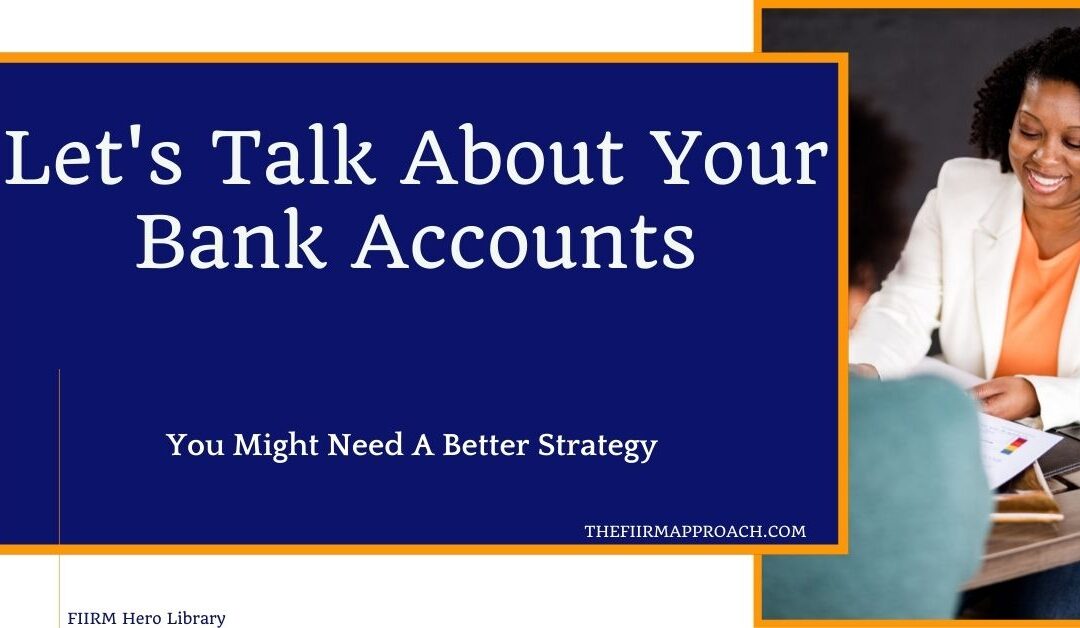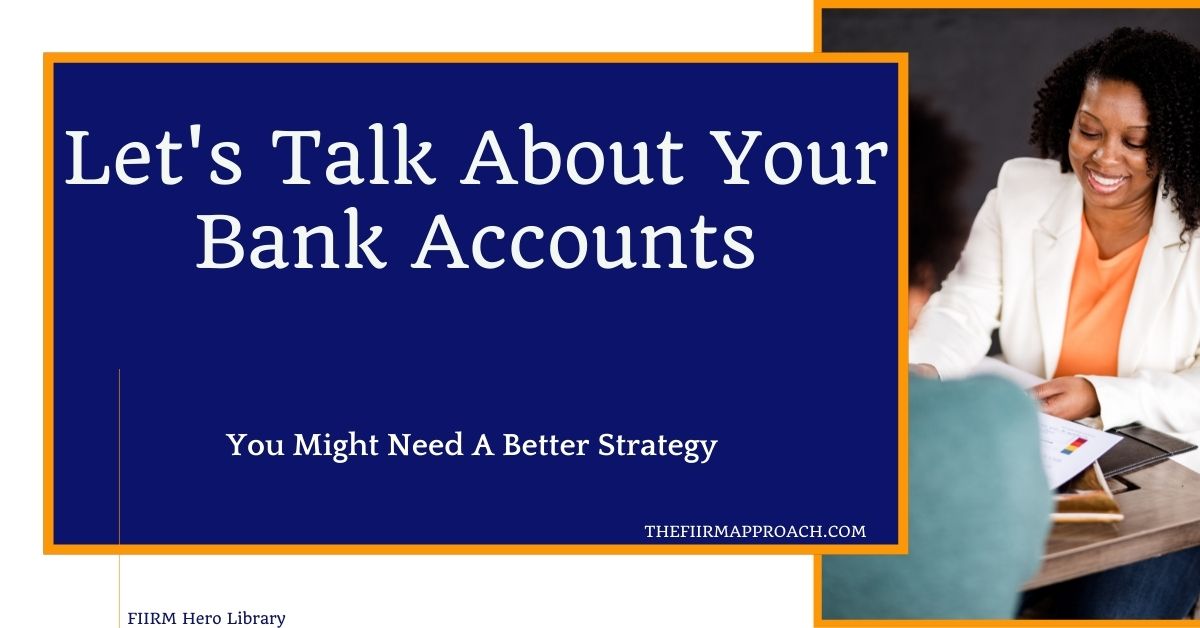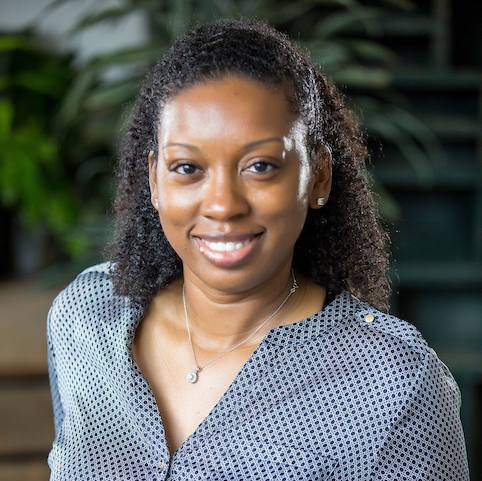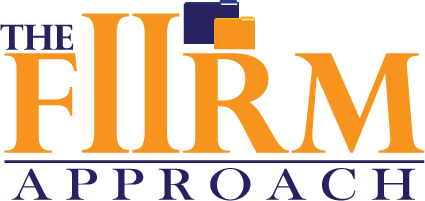
Let’s Talk About Your Bank Accounts

Let’s Talk About Your Bank Accounts
Let’s Talk About Your Bank Accounts
You Might Need a Better Strategy
It’s still April, which means it’s still financial literacy month, and even though we’re coming to the end of that, it’s not too late to talk about bank accounts!
Traditional Guidance on Bank Accounts vs My Perspective
So, let’s get into it. There’s very traditional guidance for bank accounts and from a fundamental perspective, it’s that everyone should have one checking and one saving.
I call BS.
Here’s why I call BS:
1 Checking Account and 1 Savings Account is not enough to strategically manage your money.
My preference, at a minimum, is to have two checking and two savings accounts.
I strongly believe in giving your accounts, credit cards, or bank accounts a purpose.
How can they have a specific purpose if they are essentially “all purpose” accounts?
What Your Primary Checking Account Is For
I definitely think you need a checking account dedicated to your bills. This account is for paying your rent, your mortgage, your utility bills, your insurance, and credit card bills… I think you get the point.
Nothing else is happening in this account – unless you’re a cash spender and you’re taking your cash allowance out of this account.
That’s it, that’s all that’s happening with your primary checking account.
Here’s the main reason why this makes sense.
Scammers & Fraud!
They must be offering free classes on scamming people because the scammers are BUSY!
Let me be very clear – anyone can have their accounts compromised at no real fault of their own.
I’m looking to help you minimize the chance.
If you don’t believe me – listen to an actual former con artist & fraudster from a CNBC article, by Frank Abagnale, who says this about debit cards.
“Every time you use one, you put your money and your bank account at risk.”
I, of course, agree with him 😊
The more activity on your bank account & particularly your debit card, the more susceptible you are to fraud, okay?
I want to reduce the likelihood of my accounts being compromised if everything that supports my livelihood is happening in the account (paychecks, mortgage, utilities, etc.)
The companies & financial institutions that hold your mortgage and other debts, facilitate you receiving your income, and keep your lights on often have higher security & encryption levels than the retailer you found on Instagram last week.
What Your Secondary Checking Account Is For
Quick access to cash and random purchases. While I’m not a proponent of using debit cards online hardly ever, if you must, then it should be a card tied to a non-primary account.
If you are a high debit card user, then this is the account where you want to swipe at the grocery store, the car wash, at the coffee shop, or whatever it is.
If you are making online payments or online purchases, then this is what that account is for.
The added benefit is that it allows you to easily track your fixed expenses versus your flexible expenses.
If you are looking for more clarity and control over your finances, this structure will give you that, without feeling inconvenienced or restricted.
What’s the Purpose of Your Savings Account
To save of course – well sometimes… lol.
Emergency Fund is the fun sexy word of the decade – it’s essentially just a savings account.
I want you to think about the idea of an emergency fund being something for short term needs and things that are unexpected. If you need quick access to cash this is what your long term savings account was intended for.
Short term needs can be 1, 3, 6 months – less than 12 months.
When you are saving for longer-term needs (excluding retirement) then it’s my strong opinion that you should have a SEPARATE account for that.
It should be harder to get to these funds because your intention is to SAVE, not spend the money, right?
So, you are creating accountability with yourself by making the funds harder to access.
Personally, I have no desire to link my long-term savings to my primary or secondary checking debit card – but that’s your call. I think it’s a little counterintuitive and risky. (I go into more detail about my perspective on this in my FIIRM Hero Newsletter).
Fraud
Earlier, I mentioned a little bit about bank accounts being compromised. I think most of you know that the scammers are busy.
They are busy trying to come up with new ways every day to trick you and get access to your information. I don’t want that to happen to you.
I want to remind you to be EXTRA diligent when it comes to the security of your accounts – bank accounts and credit card accounts.
Resist the urge to click links in text messages especially those that take you to a screen where you must input personal information.
Resist the urge to provide your name, your social security number, your pin number, your address – all the data points that someone needs to take over your account – if your “bank” calls you.
Even if the number on your phone screen matches the number on the bank of your ATM – tell the caller you will call them back. These fake calls/spoof calls are easy ways to trick people and steal their information.
Generally speaking, your bank is not going to call you AND ask you for a bunch of information they already have.
I’m sure you do this already (wink, wink), but today might be a good day to change your banking password (if you haven’t done it recently), set-up 2 step authentication (I know is a pain, but so is your identity being stolen), update your alerts on your account for email AND text and, if nothing else, open a new account with a new purpose.
If you are considering or preparing for divorce, I shared tips to be mindful of when divorcing related to bank accounts, marital property, and moving money in the last FIIRM Hero Newsletter. Join the FIIRM Hero community for exclusive & helpful content!

Nikki Tucker
Founder & Managing Director
Nikki is a 16-year financial services professional, a Certified Divorce Financial Analyst ®, and the primary divorce financial strategist for The FIIRM Approach. She helps female breadwinners prepare for divorce to avoid common financial mistakes and confidently maintain their financial security. She uses proven strategies within the FIIRM Approach methodology so her clients can manage their money, debt, and credit in their new financial life. TAKE ACTION & LEARN about the tools that can help make your new money life easier. Grab your FREE Ultimate Resource Guide HERE.

Recent Comments